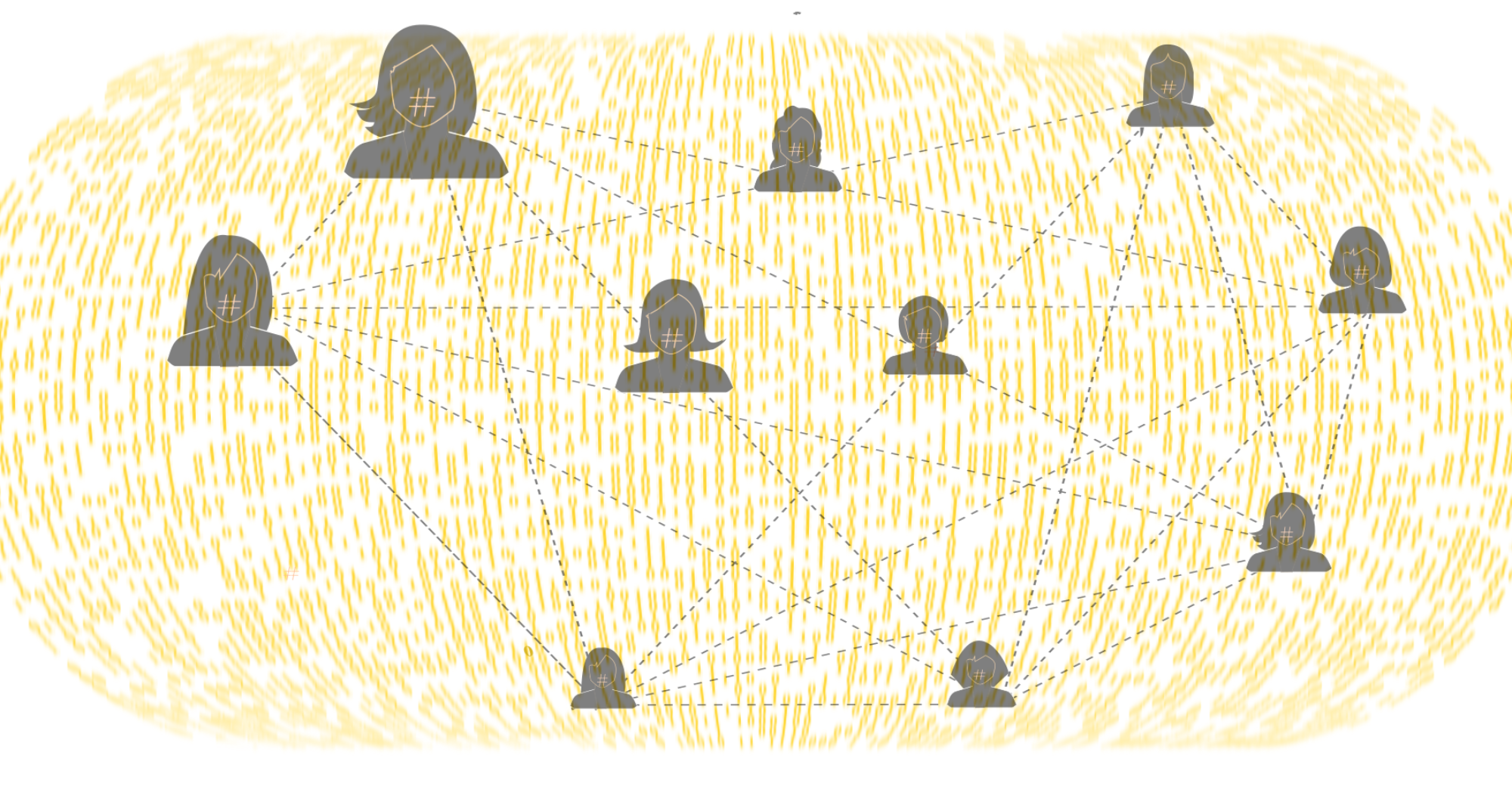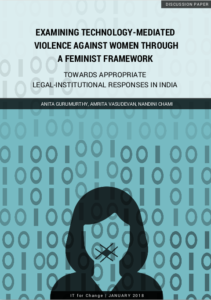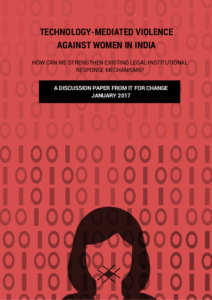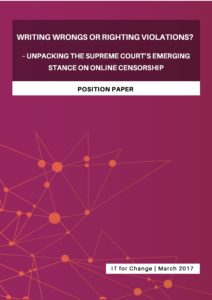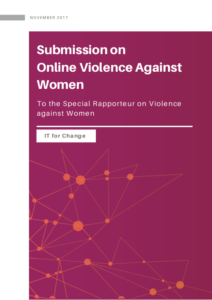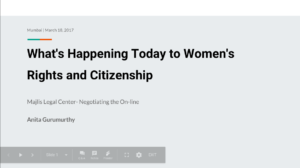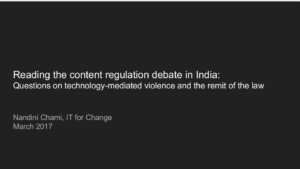Our research breaks-down the legal-institutional frameworks on technology-mediated violence against women in India, and analysis its key gaps. Details and links for all reports and presentations developed under this project can be found below:
Examining technology-mediated violence against women in India. Towards appropriate legal-institutional responses in India
Technology-mediated violence against women in India. How can we strengthen existing legal-institutional response mechanisms?
Report of the pre-consultation on technology-mediated violence against women
January, 2017: Our discussion paper led to the pre-consultation meeting organised in Bangalore in January 2017. A group of feminist scholars and practitioners came together at this meeting to review the discussion paper, debate the questions raised by it, and brainstorm on strategic directions to take this issue forward. Download full report
Writing wrongs or righting violations? – Unpacking the Supreme Court’s emerging stance on online censorship
March, 2017: This position paper looks at the issue of intermediary filtering in the context of two Supreme Court cases. The first was a petition filed by activist Sabu Matthew George in 2008, asking for a ban on advertisements on search engines related to pre-natal sex determination. The second case was a suo-moto PIL taken up by the Court in 2015, in response to women’s’ rights activist Sunitha Krishnan’s letter on the circulation ofn rape videos on social media sites. Our paper analyses these cases, alongside the arguments related to freedom of speech and the act of intermediary filtering of content, and argues for a more nuanced intermediary liability framework which acknowledges that all content cannot be treated equally. Download full paper
Submission on Online Violence Against Women to the Special Rapporteur on Violence Against Women
Nov 2017: IT for Change contributed to the ‘call for submission on online violence against women‘ by the Special Rapporteur on Violence Against Women, Ms. Dubravka Šimonović. The paper provides a state of play of the legislative, judicial and executive response to violence against women in India and highlights emerging good practices. Download full paper
Presentation at Majlis Legal Centre’s annual conference, ‘Negotiating Spaces’
March 2017: IT for Change also had the opportunity to present its research under the project at Majlis Legal Centre’s annual conference ‘Negotiating Spaces’. The conference focussed on analysing various facets, impacts and internal contradictions of online spaces, through a gender lens.
The first presentation, ‘What’s happening today to women’s rights and citizenship?’ by Anita Gurumurthy, focussed on the network-data complex and its implications for women’s citizenship. See full presentation
In the second presentation, ‘Reading the content regulation debate in India: Questions on technology-mediated violence and the remit of the law’, Nandini Chami, raised key questions about the role of technological solutions in building a gender-inclusive online public sphere. See full presentation
